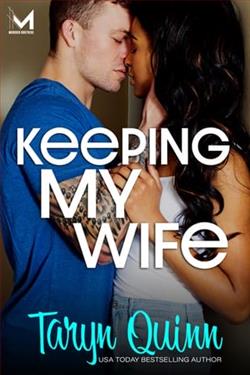Page 103 of Twisted Lies
‘Oh yeah, and have you seen Maine with its beaches and lobsters? It ain’t the Black Country, I can tell you.’
‘Do they have a waiting list?’ she asked.
‘Yeah, the queue is a mile long, and I’m sure you know I’m just filling the air in the car with rubbish until you tell me what’s on your mind.’
‘It’s Leanne. There’s more going on there than we know. She’s still keeping secrets, even though folks are dying all around her.’
‘It’s kind of her job to keep secrets though, isn’t it?’
‘I’m not talking about other people’s secrets. I’m talking about her own. Do you see how her face closes up every time we mention the people she protected before?’
‘To be fair, I don’t see any change in her expression whatever we mention,’ Bryant said.
He had a point. The change in her was subtle, but Kim had learned to study micro expressions and notice things in people’s behaviour. And there was something that Leanne didn’t want them to know, Kim thought as Bryant pulled into Cedarwood Drive.
‘Ooh, different,’ he said, looking for number six. The road was a cul-de-sac, with about twelve detached houses arching around a small green with a planted area and a couple of benches.
A BMW 5 Series was parked on the drive of number six, with a gaping space beside it, as though another car had just left or hadn’t yet returned.
‘Well, witness protection ain’t paying for this,’ Bryant said, pointing out the obvious difference between this and other properties they’d visited.
The door was opened by a smartly dressed woman in her mid-forties before they’d even had chance to knock. Their only information was the name of the witness being protected.
‘Mona Atkins?’ Kim asked.
The woman nodded, her expression a mix of irritation and impatience.
‘Which one of you is my new protection officer?’ she asked, looking from one to the other.
‘Neither,’ Kim said, holding up her identification. ‘We’re CID, investigating the murder of Sarah Lessiter.’
‘What’s that got to do with me?’
The woman hadn’t missed a beat, and her expression hadn’t changed at all. It was evident there had been no emotional connection between the two women.
‘We need to ask you a few questions. Do you mind if we come in?’ Kim asked, trying to study the woman’s features. There was something slightly familiar about the cool blue eyes and the full lips. It was like trying to place an actress you’d seen in a film.
‘If you must but be quick. I don’t want your visit being mentioned to my husband. Now what do you need to know?’ she asked, standing in the hallway and clearly the point past which they were not going to get beyond.
Leanne had said something about some people in the programme who didn’t even divulge their past to new spouses. Whether necessary for safety or not, it was a level of deceit that Kim could barely comprehend.
‘It’ll be bad enough explaining another “old friend”,’ she said, using her fingers to frame the words.
For a moment, Kim forgot they were here because a woman had been murdered, so caught up was she in this woman’s inconvenience at having to explain the presence of a new protection officer in her life.
‘So what do you want? I have to leave for work. Call centres don’t run themselves.’
‘It might be an idea to call in late,’ Kim said, trying to keep the chill out of her voice.
‘Are you people trying to ruin my life?’ she asked, adding a little melodrama to the mix. ‘You turn up here, at my home, looking like police officers and now you want me to arouse suspicion by turning up late for work?’
‘I’m sure non-witnesses are sometimes late too,’ Kim offered.
‘And I’m sure they have the luxury of being able to tell the truth as well,’ she shot back. Her face was beginning to colour. ‘You have no idea of the sacrifice and hard work it’s taken for me to construct another life, to make people look only at the parts of me I want them to see. Fifteen years I’ve been living this life that you don’t even have the courtesy to treat with respect.’
The mention of the number of years had the effect of a screen being removed and with it went any sliver of sympathy Kim might have felt.
Mona Atkins had the same initials as Melanie Abbot. The blonde curly hair had been tamed into a sleek helmet and toned down to a light brown. The woman before her bore very little resemblance to the photo of the nineteen-year-old girl who had helped her boyfriend conceal the murder of an eight-year-old boy. The public outcry against this woman had equalled if not exceeded the rage against her boyfriend, who had committed suicide before the trial. She had faced the public anger alone. Eventually found guilty of perverting the course of justice, she’d served three or four years and been released with a new identity before her twenty-fifth birthday.















